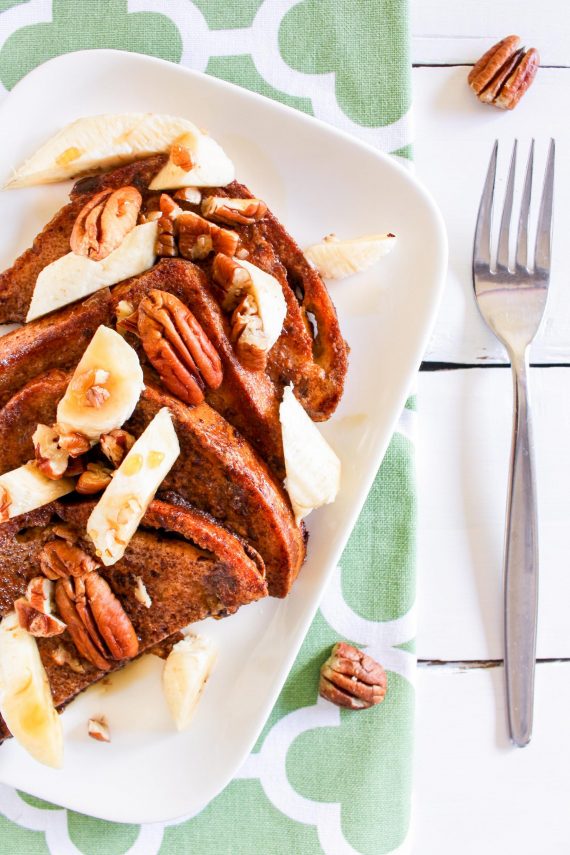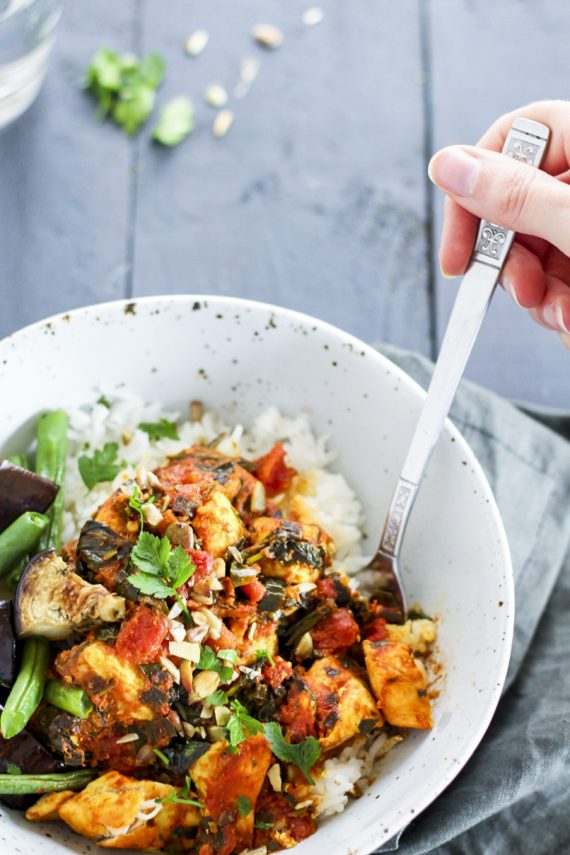Have you ever wondered what happens to IBS symptoms during pregnancy? Or if it’s okay to stay on the low FODMAP diet while pregnant? In this Monash FODMAP chat session, we’re discussing pregnancy and the low FODMAP diet. We’ll be looking at how gut symptoms change during pregnancy and what you can do to manage them. Additionally, Alana Scott, Founder of A Little Bit Yummy and Lyndal Collins, research dietitian from the Monash University FODMAP team, will share their pregnancy experiences.
This article will cover the following:
- FODMAP Chat session with Lyndal Collins from the Monash FODMAP Team
- Can being pregnant change the gut symptoms you experience?
- Should you use the low FODMAP diet to manage gut symptoms while pregnant?
- What can you do to manage diarrhoea or constipation during pregnancy?
- Lyndal’s pregnancy experience
- Alana’s pregnancy experience
- Other tips
- Final thoughts
Watch The Video
Pregnancy and the Low FODMAP Diet Chat Notes
Host: Alana Scott from A Little Bit Yummy
Monash University FODMAP Dietitian: Lyndal Collins
Can pregnancy change your gut symptoms?
Anyone who has experienced pregnancy will agree that pregnancy hormones can have a massive impact on the gut and each person will have a different experience.
In the first trimester, you have a rapid change in hormones that can affect the gut by causing either constipation or diarrhoea. In the second trimester, symptoms often settle and the pregnant mum will experience a reduction in gut symptoms. Then in the third trimester, there are different elements going on where you have a big baby putting a lot of pressure on the gut, the internal organs become squished from lack of space, and you also have the relaxin hormone coming into effect. The job of the relaxin hormone is to relax the muscles to make giving birth easier; however, it also slows down our gut motility making constipation worse. Bloating and excess gas are also common issues experienced throughout pregnancy. Your body undergoes massive changes during pregnancy, making it a very challenging time.
Should you use the low FODMAP diet to manage symptoms during pregnancy?
It’s not generally recommended. During pregnancy, you have increased nutritional requirements and need more vitamins, minerals, and calories/energy as you grow another human. So we don’t want to be implementing any dietary restrictions unless they are absolutely necessary for both the health of the mother and the baby.
However, on the flip side, we understand why some pregnant women with IBS, who know they are sensitive to FODMAPs, might think that going back to a strict low FODMAP diet might help. If the diet has worked for them in the past, it’s logical to think it might help reduce symptoms during pregnancy. It’s important to remember that during pregnancy, increased gut symptoms are most likely due to the pregnancy itself and the hormones involved. As the gut symptoms are less likely to be related to how well you are tolerating FODMAPs, changing your FODMAP intake is unlikely to have an impact.
The take-home message is that we don’t recommend a strict low FODMAP diet during pregnancy; in fact, many women find their FODMAP tolerances ease while pregnant.
What can you do to manage diarrhoea or constipation during pregnancy?
Talk to your healthcare provider (e.g. doctor, midwife, obstetrician) about your symptoms. Your healthcare provider will deal with these issues every day. Sometimes the answer will be to wait out the symptoms, and other times there are medications or lifestyle strategies that can help. Always check that medications are safe for pregnancy before taking them, especially if the medication was prescribed before you became pregnant.
Common constipation management strategies that are safe to use during pregnancy:
- Use a footstool under your feet when you sit on the toilet to improve your toileting posture.
- Stay hydrated – during pregnancy, your body’s fluid requirements will increase.
- Include kiwifruit in your diet if you are okay with the smell and taste of them during pregnancy.
- Keep active as much as possible. Gentle exercise like walking and stretching can help keep things moving (provided your doctor hasn’t advised against it and you feel well enough).
Keep in mind that sometimes the medication prescribed to manage nausea and vomiting during pregnancy can also have a constipation side effect, so talk to your healthcare provider early on about how to manage constipation.
Lyndal’s Pregnancy Experience
During my first trimester, my gut and body went haywire due to the pregnancy hormones and I struggled with severe constipation. I found using a fibre supplement and staying hydrated useful. When you’re growing a little human, there are lots of fluid requirements going on – you are producing amniotic fluid and your whole blood volume increases to support that new life, so your need for fluid increases. I also used a footstool when sitting on the toilet and some medication after talking to my midwife about laxatives that are safe to use during pregnancy.
Everything settled down in the second trimester, and most of my FODMAP sensitivities disappeared. For the first time in years, I could enjoy onion, garlic, and all of the foods I had to limit in the past. So this was one of the beautiful side effects of pregnancy that I enjoyed.
Then in the third trimester, the constipation came back, which is common, and I had to wait it out while using the strategies discussed above.
Alana’s Pregnancy Experience
My symptoms changed too. I was really ill in my first trimester and was on IV fluids every few days – not so much because I was throwing up all the time but because my body was struggling to cope and I was feeling dizzy and had low blood pressure, a high heart rate and was feeling very nauseous and unwell. The only foods I could stomach during the first trimester were homemade nachos, cheese, and ice cream! I used my lactose intolerance to my advantage to help reduce constipation. During the first trimester, I focused on eating any foods I felt I could keep down.
It still hasn’t been easy during my second and third trimesters, but my FODMAP intolerances have pretty much gone.
Throughout my pregnancy, I’ve still been cooking some low FODMAP meals for A Little Bit Yummy content, but I’m also eating plenty of high FODMAP foods. The food freedom has been fun to play with, and I’ve enjoyed being able to eat the foods I’ve been craving.
Are there any other food strategies or tips you’d like to pass on to mums-to-be?
Pregnancy can be a challenging time around food, regardless of whether you have IBS, so be gentle with yourself.
In the first trimester, the goal is to eat anything you can tolerate. If you can’t eat a balanced diet, that’s okay (Alana couldn’t eat vegetables, salad or fruit for a few weeks). Your baby will take everything it needs from your body to grow and flourish. Just ensure you take your pregnancy vitamins and keep your healthcare team informed about what is happening.
Pregnancy nausea can cause food aversions and you might not be able to eat foods you normally love. Your sense of taste might also change so sometimes you might not enjoy food anymore because it doesn’t taste right (it’s common to lose your sense of taste for a while). These changes while frustrating are temporary and it’s okay for your relationship with food to change (it won’t last forever). Be kind to yourself and ask for support from your family, healthcare providers and dietitian if you have one.
Useful Resource
You can also find more information about pregnancy and the low FODMAP diet on monashfodmap.com.
Got a question?
Feel free to leave us a comment and we’ll reply to you as soon as we can.
Final Thoughts
Each pregnancy journey is unique and we understand how challenging pregnancy can be. Our top tip is to go through your pregnancy journey with an open mind and try not to worry about your food intolerances. We hope you enjoy some time during your pregnancy with more food freedom and reduced FODMAP intolerances. Hopefully, this session has given you more confidence and a better understanding of pregnancy and the low FODMAP diet. We wish you all the best!
Image credit: A Little Bit Yummy












Leave a Reply